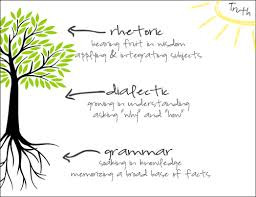January 28, 2019
Regents Daily News: January 28, 2019
Classical Education: A Few Simple and Direct Words of Explanation

Classical Christian education is a new and exotic animal for many Regents Academy parents. I always appreciate finding simple and direct explanations of many of the concepts, otherwise unclear or unknown, associated with our school’s philosophy of education. Below are a few questions and brief answers by Douglas Wilson that get right to the heart of several of these issues. I hope they are a help to you and also a way for you to be able to share what you’ve found with others.
What is classical education and how does it benefit the student?
Classical education refers to two principal things. The first is the structure of the curriculum, which follows the medieval Trivium. This consists of grammar, dialectic (or logic), and rhetoric. In her wonderful essay “The Lost Tools of Learning,” Dorothy Sayers observed that these three stages of the Trivium correspond nicely to three basic stages in child development—what she called the poll parrot stage, the pert stage, and the poetic stage. Classical education instills the elements of the Trivium at the ages of the student when acquiring that element is most natural. When the process is over, the student has acquired the tools of learning. The second aspect of classical education refers to the content of the curriculum, which emphasizes the great works of western civilization—Homer, Virgil, Herodotus, Augustine, Beowulf, and so forth.
Some parents may be put off by classical education because Latin is a central element and they’ve had no background in the language. Why is the study of Latin important?
Over 50% of English vocabulary comes from Latin. Learning Latin is a wonderful way to strengthen English vocabulary skills, not to mention learning how grammar works. I learned some things about English grammar when I first learned Latin. Latin is also the foundation of modern Romance languages—it is a wonderful platform from which to learn Spanish, French, Romanian, Italian, and so on. And then there is a literary element. Many of the great works in English literature presuppose a knowledge of the classical world and, to a lesser extent, a knowledge of their languages. Finally, Latin is a great mental discipline, which carries over into other subjects. The study of Latin certainly enriches a student.
Because of its emphasis on “intellectualism” and because works from the pre-Christian era are part of the curriculum, some people may view classical education as incompatible with the Christian faith. What is your response to these concerns?
It is quite true that students should not be simply “turned loose” in the thickets of pagan literature. The Greco-Roman world was incompatible with the Christian faith—until the Christian faith overthrew it. Now that this has happened, we simply must take into account the nature of that battle. The New Testament cannot really be understood without understanding its context, which happens to be the context of the classical world. Jesus was born in the reign of Caesar Augustus. Gallio threw the apostle Paul out of court—and Gallio was the brother to the famous Stoic philosopher Seneca. Paul cast a demon (lit. a spirit of a python, a snake that was sacred to the god Apollo) out of girl at Philippi, and the story suddenly makes more sense. So classical education, rightly understood, rejects a cold intellectualism and rejects any attempt to combine Christian and pagan categories.
Many jobs in today’s society are specialized, especially those in technology and the sciences. What is the value of a classical education in light of such an environment? Is classical education for everybody?
The point of classical education is to teach the kids how to think, giving them the tools of learning so that they can reason things through themselves. The point is not vocational training primarily, and this is why it is such good vocational training. This is not to say that classical education is for everyone (I do not believe that it necessarily is). But I do want to say that a classical Christian education should be available in every community, so that it is at least an option for every Christian household.
Douglas Wilson is the author of Recovering the Lost Tools of Learning, The Case for Classical Christian Education, and many other books and articles associated with classical Christian education. You can find his books on Amazon.com and many of his materials on line.


